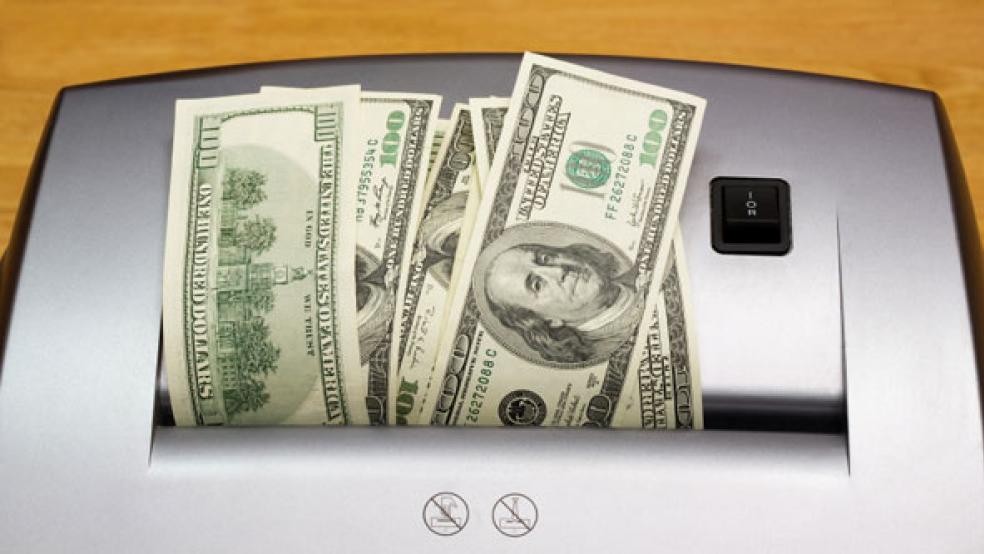John McCain has released the first government wastebook of 2016.
Sticking to the unspoken Capitol Hill rule that all reports on wasteful taxpayer spending come in a silly package, the Arizona Republican is out with the fourth edition of “America’s Most Wasted,” which highlights $27 billion worth of egregious federal expenditures.
Related: Solar-Powered Beer? 8 Ridiculous Ways the Government Wastes Your Money
McCain, the Senate Armed Services Committee chair, cites over $59 million in waste at the Defense Department and another $1.7 billion by Veterans Affairs.
In all, his report identifies 50 duplicative or head-scratchingly wasteful federal programs and efforts.
“With spending habits like these, Washington should have only one New Year’s resolution in 2016 – to end this dangerous credit addiction,” McCain said in a statement.
Here are some examples of what McCain and his staff dug up:
* The National Institutes of Health spent $51,000 to study drunk birds. A grant to the Oregon Health and Science University examined the effect of ethanol on the singing ability of Zebra finches. Apparently birds start slurring a bit after they’ve had a few drinks. Who’d have guessed?
*The Agriculture Department is giving a number of vineyards, breweries and distilleries about $3.5 million in grants designed to boost business in rural areas, but McCain concluded that they “do little to stimulate growth anywhere except the awardee’s bank account.” He highlights one company in Michigan that used the money to build tasting rooms, even though the enterprise already had one capable of hosting 100 people.
Related: Monkeys Running on Treadmills: Hairy Tales of Government Waste
* The Pentagon handed over roughly $1.1 million to a researcher to conduct MRIs of dogs, ostensibly to glean some kind of insight into the human brain. After training and scanning a dozen dogs, the researcher found scientific reaction to his efforts were “kind of dismissive” and concluded that “dogs are people, too.”
* The National Science Foundation gave more than $872,000 to University of Iowa researchers to study how children cross the street. The results concluded that children tend to take greater risks when crossing the street compared to adults -- “something generations of American parents already knew,” according to McCain’s report.
* The National Endowment for the Humanities awarded Filmmakers Collaborative $600,000 to oversee the “production of a two-hour film on the life and work of Walt Disney that focuses on his innovations as an entertainment entrepreneur and his relationship to crucial 20th Century events.” Just in case anyone needed a reminder?
Related: The Pentagon Paid Millions to Pro Sports Teams for Military Tributes
* The Education Department doled out $5,000 to the University of Hawaii to fund research of a book on Hello Kitty. McCain’s report cites a summary of the book that says the author credits the Japanese icon’s popularity to the “‘the blankness of her design’… People see the possibility of a range of expressions. You can give her a guitar, you can put her on stage, you can portray her as is. That blankness gives her an appeal to so many types of people.”
* The Education Department also spent over $2.2 million to send text messages to high school students to remind them to enroll in college courses.
* The National Endowment for the Arts awarded a $25,000 grant to the Denmark Arts Center in Denmark, Maine, to support “Something Rotten, an artist residency program that takes local artists to area landfills to inspire them to make works from trash.
* In 2014, the Army National Guard spent $13,500 for soldiers to play bubble soccer. The contests in 30-pound plastic orbs were supposed to get enlisted soldiers in Wisconsin ready for basic training with minimal risk. This at a time when the Badger State’s Guard was experiencing a $101 million budget shortfall and had to delay some drill weekends, McCain notes.





